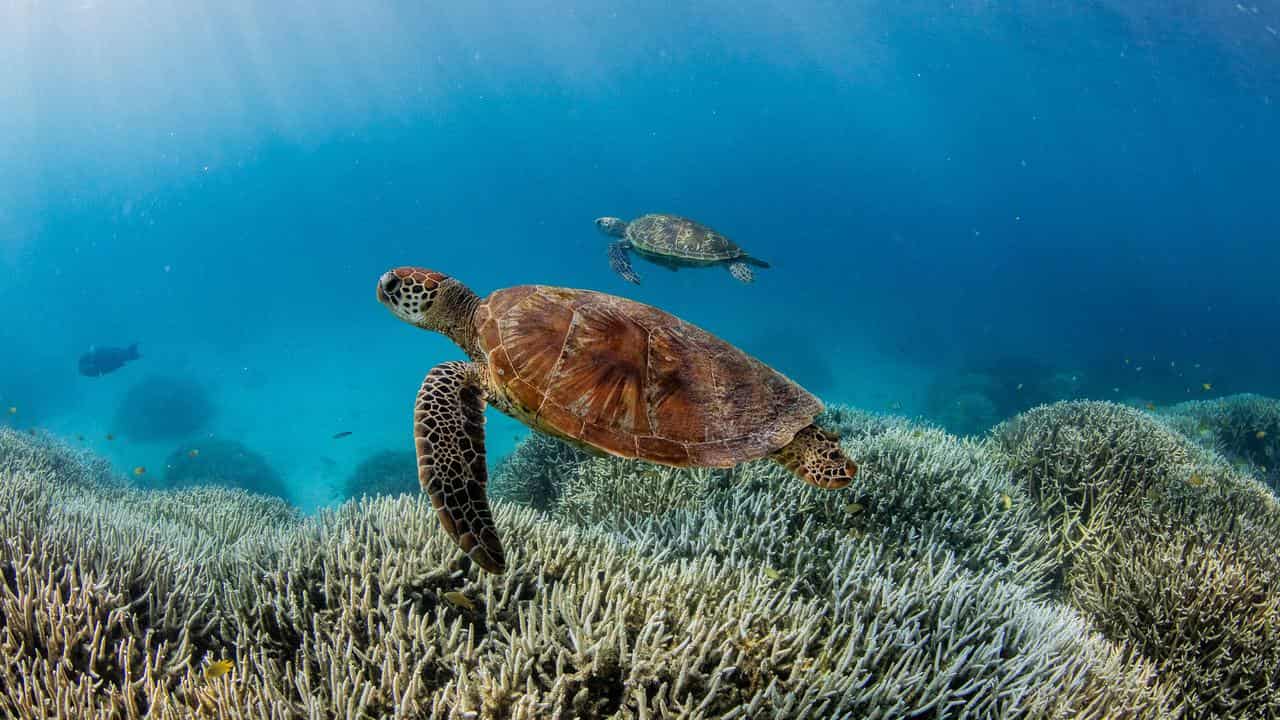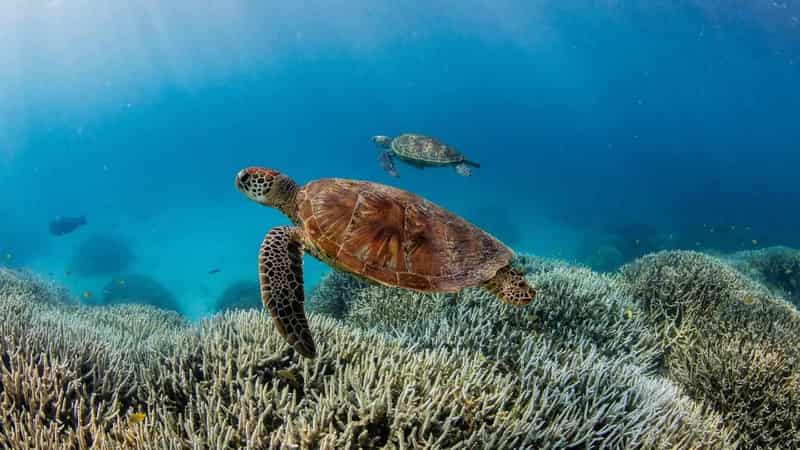
Small signs of change deep within the core of corals comprising the world’s largest reef show a threat authorities might be unwilling to acknowledge.
Australian researchers warn the Coral Sea is the warmest it has been in at least 400 years, putting the Great Barrier Reef in danger.
Lead author Benjamin Henley said the research, published in Nature journal on Thursday, involved drilling the cores of coral to identify geochemical changes and reconstruct past sea-surface temperatures.
Co-author Helen McGregor said it was like counting the rings of a tree to determine its age.
Their research concluded sea-surface temperatures in the Coral Sea were relatively stable and cool for centuries before rapid increases to unprecedented levels recorded between January and March, posing a danger to the reef.
The Great Barrier Reef is the world's largest reef with a size on par with that of Japan.
UNESCO's World Heritage Committee opted not to list the reef as “in danger” in July due to plans in place to protect it, a decision welcomed by the commonwealth and Queensland governments that jointly manage it.
But that will not stop scientists saying it is at risk.
“The UNESCO process, in our view, should take account of the physical, the biological and the human aspects, and it’s our assessment that the reef is in danger,” Dr Henley said.
“It’s excellent to see local actions being taken,” he said, but added the focus needed to be on the stressors endangering significant sites.
“And clearly climate change is the long-term driver of the stress to these coral ecosystems,” he said.
Without rapid action, the reef's demise is likely, the report concluded.
Professor McGregor said officially listing the reef as in danger would not apportion blame but would instead rally the world to reduce emissions globally.
“We need to be looking at all reefs as in danger,” she said.
The Australian Institute of Marine Science reported on Wednesday the reef had experienced its fifth coral bleaching event since 2016 after a period in which coverage slightly increased.
The observed increase stemmed from a reprieve between 2018 and 2022 that allowed coral to recover.
But breaks from heat and extreme weather are likely to shorten and the recent bleaching was among the most serious and widespread ever, experts say.
World Wildlife Fund Australia oceans head Richard Leck said the latest research results highlighted an uncertain future for the reef.
“While we’ve seen some natural variations in coral cover in the past, we are now seeing huge variations as sea temperatures warm,” he said.
A better understanding could be gained when monitoring resumes in September.
The institute's regular reports were useful but studying long-term effects was also important to understand rising temperatures, Dr Henley said.
Prof McGregor likened it to the difference between studying long-term climate trends and daily weather observations.
“Reefs are showing some resilience, but looking at the longer term, there are changes,” she said.
Less time to adapt to changes as they occur could hamper future bleached coral's recovery.
“They are tough critters, corals, but they're not invincible,” she said.









